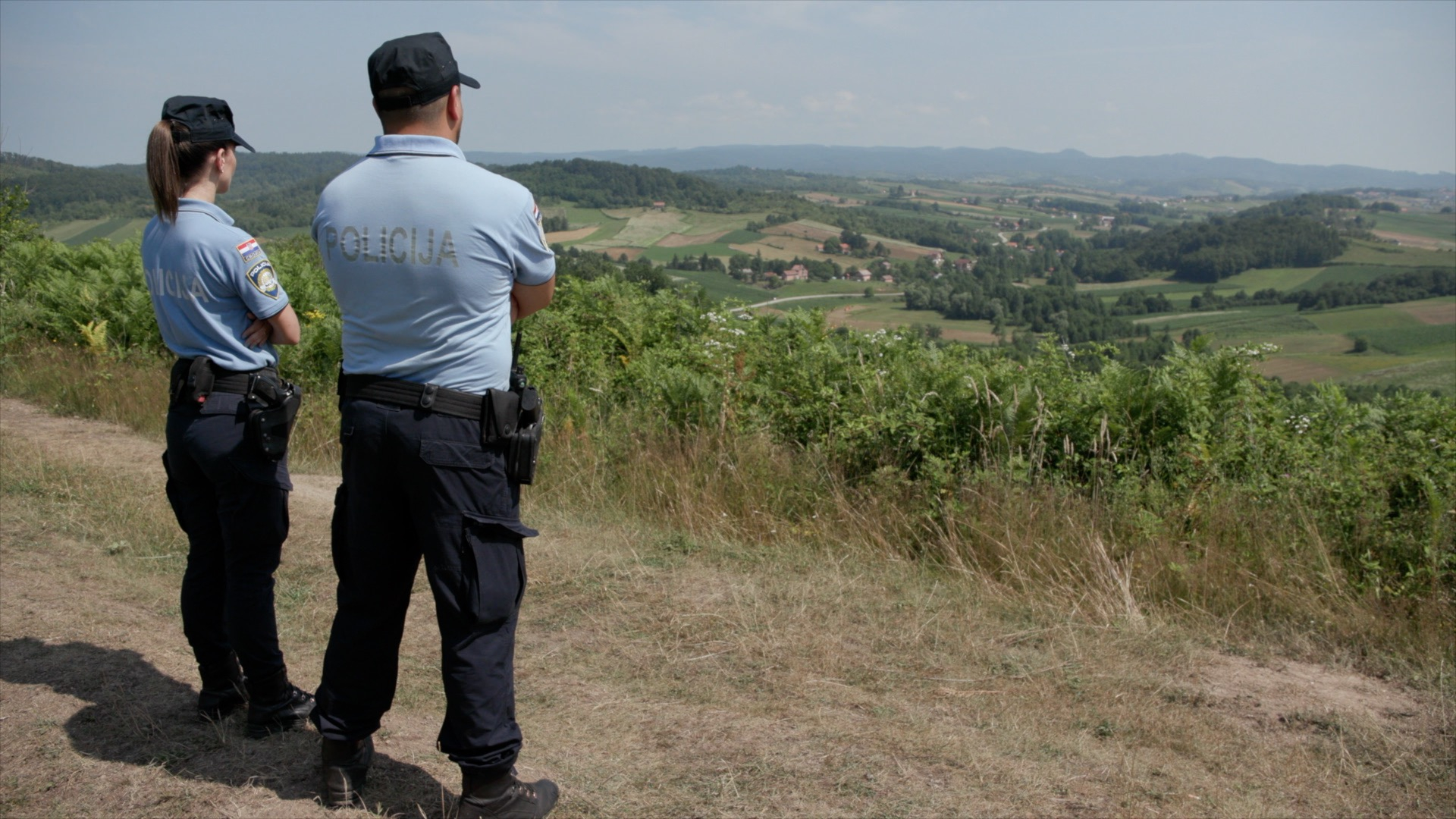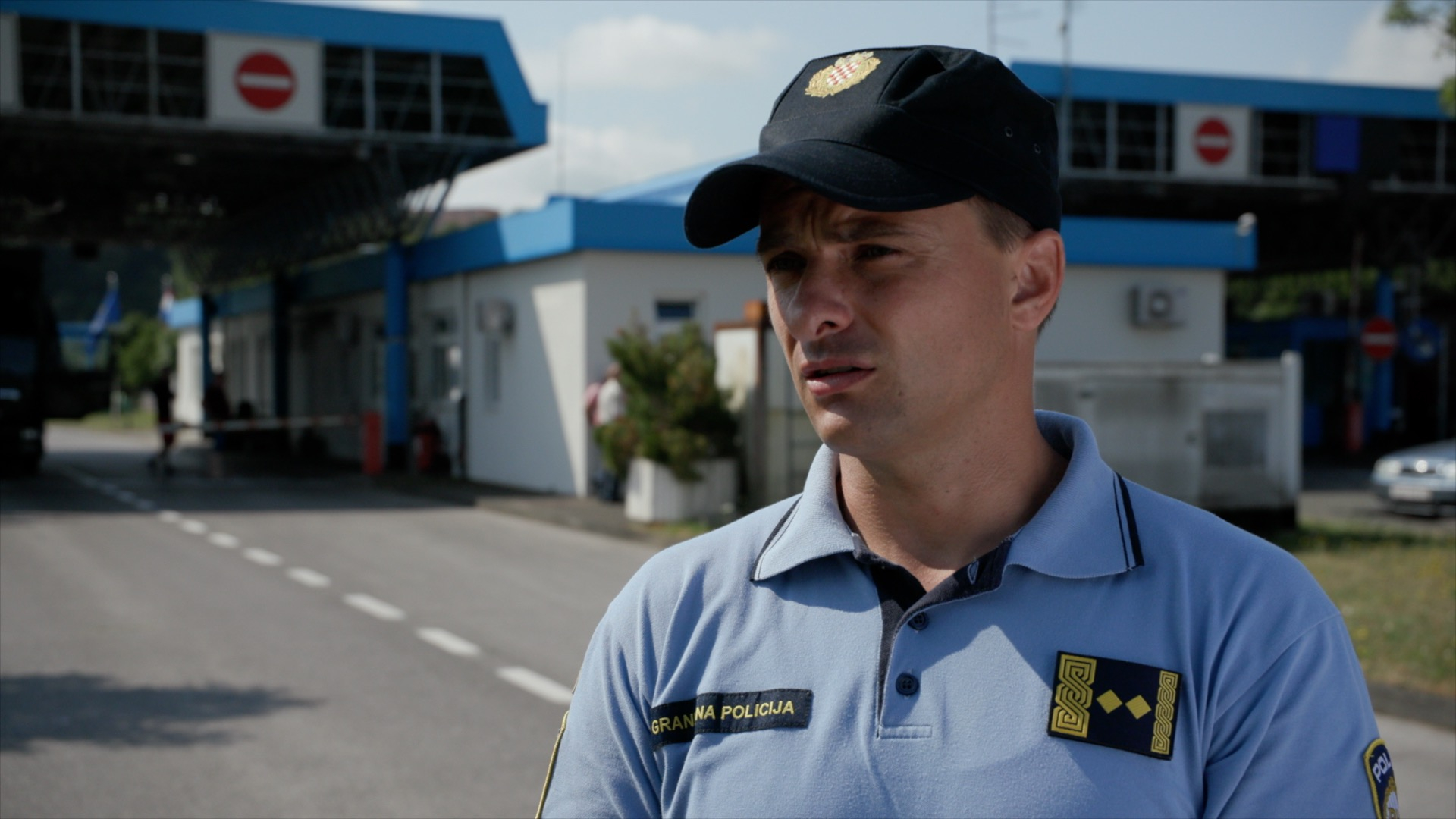

From July 1, joint Slovenian-Italian border police units have been patrolling the border between the two countries in an attempt to stop the flow of illegal migrants coming to Italy via the so-called "Balkans route."
Italian Interior Minister Matteo Salvini has threatened that if the patrols fail to stop the influx of illegal migrants, Italy will build a border fence. However, Slovenians and Italians living along the border have already rejected the proposal.
In the meantime, thousands of migrants on their way to Italy are stranded in Bosnia and Herzegovina with the towns of Bihac and Velika Kladusa in the west of the country being the most severely affected.
Because of their proximity to the Croatian border, migrants are using the two towns as a springboard for illegal crossing into the EU.
On the other side of the border, Croatian police are deployed 24/7, carefully watching for any suspicious movement in the Bosnian neighborhood. They are the EU's first line of defense against thousands on their journey to Slovenia and Italy. The Croatian border police's main task is to serve as a visual deterrent to those considering an illegal trek across this small section of the border, but they also intervene when needed.

Damir Butina, chief police inspector and head of border police in Cetingrad, speaks to CGTN at the Maljevac border crossing on the Croatian side. /CGTN Photo
"Last year we had just over 50 registered illegal border crossings, while just in the first six months of this year we had 179. So, we do have an increase in numbers. But we are acting only as of the first line, and mostly as deterrence. We are monitoring the territory of Bosnia, and if we see groups of migrants preparing to cross the border, we are deploying our officers to that location," said Damir Butina, chief police inspector and head of border police in Cetingrad.
Although the numbers he has given sounds rather low, it is just a fraction of those who illegally enter Croatia. Many have escaped undetected, and many others have been apprehended by other police units deeper inside Croatia.
EU support
The European Union is sending a lot of high tech equipment to the Croatian border police, hoping to help them protect the EU borders from illegal crossings.
One of the more visible measures for fighting those migrations is a massive border fence erected at the Maljevac crossing. It's a response in part to what happened there last October, when hundreds of migrants clashed with security forces, and also to follow the EU's directives on the border protection issue.
Just a few kilometers away, on the outskirts of Velika Kladusa is a camp that currently houses over 500 migrants. It is inside Miral, a former factory that made windows and doors. During the winter when all the backroads into Croatia had closed up due to the inclement weather, the population there peaked at nearly 1,000 — all men.

Desmond Happy, a migrant from Cameroon, speaks to CGTN at the migrants camp in a former windows and doors factory in Velika Kladusa. /CGTN Photo
For many migrants, the camp is the farthest they are likely to reach on their long and tedious journey. Desmond Happy from Cameroon is one of them.
He has been stranded there for nine months, all that time trying and failing to reach his destination. He said he is willing to leave at any time as he feels unwelcome.
"I'm not safe," Happy said. "For example, when going to town, [it] is like you have limited time in town to be in town. The police will come and say, 'Leave, leave. What you're doing here? Leave, leave.' Then (if you want to) go into a coffee shop to have like something to eat, you're not being accepted."
That's not the only problem Happy and many other migrants staying in the factory barracks are facing. There is constant violence among various groups of migrants, according to Peter Van der Auweraert, head of the International Organization for Migration in Bosnia and Herzegovina. Also, criminal activity there often goes unpunished.
"For example, if one migrant murdered another. That person did not get convicted because the judge decided that given the fact that he didn't have a passport, he couldn't say whether the person was really person A or not," Van der Auweraert said.
With Slovenia and Italy increasing border controls, officials at the International Organization for Migration say they fear the number of migrants stranded in Bosnia will continue to rise, further straining resources and complicating Europe's migrant problem.

Copyright © 2018 CGTN. Beijing ICP prepared NO.16065310-3
Copyright © 2018 CGTN. Beijing ICP prepared NO.16065310-3